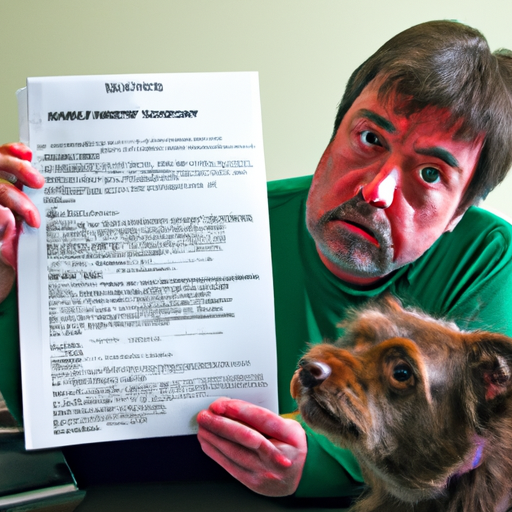As a dog owner, the health of your canine companion is undoubtedly your top priority. One common concern that can emerge from a routine vet visit is the discovery of elevated liver enzymes in your dog. But what exactly does this mean and how does it impact your dog’s health? Let’s delve into these questions and more.
- Understanding elevated liver enzymes
- Causes of elevated liver enzymes in dogs
- Symptoms to watch out for
- Diagnostic procedures
- Treatment options
Key takeaways
- Elevated liver enzymes in dogs can be indicative of various health concerns, including liver disease or damage.
- Several factors can cause elevated liver enzymes, including drugs, toxins, infection, or even certain breeds’ genetic predispositions.
- Common symptoms include loss of appetite, lethargy, and changes in urine or stool color.
- A comprehensive diagnosis often involves blood tests, ultrasound, or potentially a liver biopsy.
- Treatment largely depends on the underlying cause, and could range from dietary changes to medication or surgery.
Understanding Elevated Liver Enzymes
The liver is a vital organ responsible for numerous functions in your dog’s body, including detoxification and the production of essential proteins. It also metabolizes drugs and stores energy. When the liver is healthy, it releases a small amount of specific enzymes into the bloodstream. However, when the liver is injured, diseased, or under stress, it releases a higher quantity of these enzymes, leading to elevated liver enzymes. This is an indication that all is not well with your dog’s liver.
Causes of Elevated Liver Enzymes in Dogs
Elevated liver enzymes in dogs can result from a variety of causes. It could be due to certain medications or exposure to toxins. Infections, tumors, and diseases such as hepatitis or pancreatitis could also be the culprits. Some dog breeds are genetically predisposed to liver disorders, including the Yorkshire Terrier, Bedlington Terrier, and West Highland White Terrier. According to the American Kennel Club, these breeds should have regular liver function tests.
Symptoms to Watch Out For
There are various signs that could indicate your dog has elevated liver enzymes. These include:
- Loss of appetite
- Lethargy or depression
- Increased thirst and urination
- Jaundice (yellowing of the skin and eyes)
- Dark-colored urine or pale-colored stool
However, these symptoms can also indicate other health issues. Therefore, it’s crucial to consult your vet if you notice any of these signs.
Diagnostic Procedures
The detection of elevated liver enzymes typically begins with a blood test, known as a serum biochemistry profile. If the results show elevated liver enzymes, further tests will be necessary to identify the underlying cause. Additional diagnostics may include an abdominal ultrasound, liver biopsy, or specific blood tests for infectious diseases. A study from the Journal of Veterinary Internal Medicine provides more detailed information on diagnostic procedures.
Treatment Options
The treatment for elevated liver enzymes in dogs largely depends on the underlying cause. If medication or toxins are the cause, these will need to be removed or replaced. Infections will require antibiotics, while tumors might necessitate surgery. For many liver diseases, dietary changes can be beneficial. Dogs with liver problems often need a diet low in protein and high in carbohydrates.
You might find these articles on dog nutrition, common dog diseases, and dog medication helpful as you navigate your dog’s health journey.
Frequently Asked Questions
What do I do if my dog has elevated liver enzymes?
If your vet has detected elevated liver enzymes in your dog, they will likely recommend further tests to identify the underlying cause. Follow your vet’s advice regarding treatment options.
Can elevated liver enzymes in dogs be reversed?
Yes, in many cases, the liver can recover once the underlying cause is addressed. This might involve medication, dietary changes, or surgery.
How can I care for a dog with liver disease?
Regular vet check-ups, a balanced diet, minimal exposure to toxins, and prescribed medication can all help manage liver disease in dogs.
While the news of elevated liver enzymes in your dog can be alarming, remember that it’s a symptom, not a disease. With your vet’s guidance and your loving care, your furry friend stands a good chance of leading a healthy, happy life.



